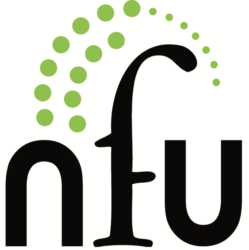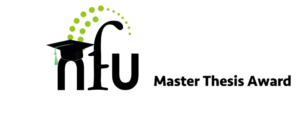Det er bare få dager igjen til markeringen!
Vi ser frem til fem flotte markeringer i Norge (Bergen, Bodø, Oslo, Trondheim, Tromsø) og over 500 markeringer totalt over hele verden 22. april!
March for Science Oslo
Lørdag, 22. april, kl15-17 fra Rådhusplassen til Stortinget med appeller og musikk begge steder.
Informasjon om markingen i Oslo blir fortløpende oppdatert:
https://www.facebook.com/events/1837923606464780/
https://www.eventbrite.com/e/march-for-science-oslo-tickets-33766516560?aff=es2
Alle som har lyst kan gjerne henge opp plakater for å synliggjøre markeringen: https://drive.google.com/open?id=0BwYvreHwAR7ATHRTV0JfbkN5WWM
https://drive.google.com/open?id=0BwYvreHwAR7ANzktSl9hU3dTcmM
For å kunne holde en god dialog med politiet om forventet deltaktertallet og for å kunne bestille riktig lydsystem, ber vi alle som planlegger å delta å melde seg på via facebook eller Eventbrite.
Hvorfor går vi?
March for Science er svært aktuelt her i Norge, ikke bare for å støtte vårt globale forskningsfelleskap. Det pågar for tiden en aktiv diskusjon om bærekraftig bruk av våre ressurser, miljøvern pluss rett til et levelig klima for framtidige generasjoner, vitenskapelig ytringsfrihet, forskningsformidling og universitetenes/vitenskapens rolle i det “post-faktuelle” samfunnet.
Vi marsjerer for uavhengig forskning, kritisk tanke, fri forskningsformidlig og for betydning av disse verdiene i våre lokale og globale samfunn. Vitenskap spiller en stor rolle i vårt daglige liv, ofte på måter som vi ikke er direkte bevisst på eller anser som gitt. Kunnskap er vesentlig for bærekraftig utvikling og bruk av våre ressurser.
Politiske beslutninger skal bygge på de beste, fakta-baserte resultater vi har tilgjengelig. Vitenskapelige resultater kan ikke avvises eller ignoreres hvis de er politisk upassende eller ubekvemme.
Vi som et samfunn må bekrefte at det finnes en stor forskjell mellom en mening og et vitenskapelig-basert faktum. Det er viktig at vi stiller politikere til ansvar for deres uttalelser. Vi som et samfunn må respektere og fremme forskning som gir oss mer forståelse av verden rundt oss. God forskning vokser på: tid, god finansering samt respekt for kvalitet over kvantitet.
Det er meget viktig at vi formidler forskningens betydning og nytte men også dens begrensninger. Derfor kan forskere og akademikere ikke bare levere forskningsresultater og gå sin vei. Forskere må etablere en god dialog med samfunnet for å delta i tolkning, vurdering og omsetning av vitenskapelige funn.
Sist men ikke minst er vitenskap et globalt felt. Forskningssamarbeid ser ikke landegrenser. Når forskning angripes i et land, så angripes hele systemet. Derfor marsjerer vi verden rundt for å støtte vårt globale forskningsfelleskap.
Program i Oslo (se nettsiden for program i de andre byene også):
Rådhusplassen
15.00 – 15.10 Ankomst
15.10 – 15.50 Appeller & Musikk
Beate Sjåfjell (Konferansier) – Leder av Concerned Scientists Norway
Some Feather – Musikk
Marit M. Simonsen – Spaltist i Klassekampen, vitenskapsformidler og tidligere leder I Foreningen Skepsis
Trine Lise Sundnes – Leder i LO-forbundet, Handel og Kontor
Karen O´Brien – Professor ved UiO, Medgrunlegger av cChange, og internasjonal ekspert på klimaendring
Birger Svihus – Professor ved NMBU, forsker, foreleser og forfatter med fokus på ernæring
15.50 Avmarsj til Stortinget
Stortinget
16.20 Ankomst
16.30 – 17.00 Appeller & Musikk
Sunniva Rose – Fysiker, forskninsformidler på rosablogg, radio og TV
Kunngjøres Senere – Representant fra Akademiet for Yngre Forskere
Inga Marie Nymo Riseth – Leder av Studentene og Akademikernes Internasjonale Hjelpefond (SAIH)
Diego Marin Rios – Tidligere leder i Colombias største studentorganisasjon og politisk flyktning i Norge
Mads With – Musikk
Kevin Steinman & Band – March for Science sin originale sang “Shoulders of Giants”
https://www.youtube.com/watch?v=3h8CW3WE8I8
Ta gjerne kontakt ved spørsmål. Hvis dere ønsker informasjon også på engelsk, gjerne si fra!
Takk for at dere støtter March for Science!
Med beste hilsen,
Stefanie Brendecke
—
På vegne av March for Science Oslo styret
Nettside: http://marchforsciencenorway.com/
Facebook: fb.com/marchforsciencenorway
E-post: sciencemarchoslo@gmail.com, sciencemarchnorway@gmail.com
Twitter: @SciMarchNorway
Instagram: marchforsciencenorge




 Don’t forget to register for the
Don’t forget to register for the